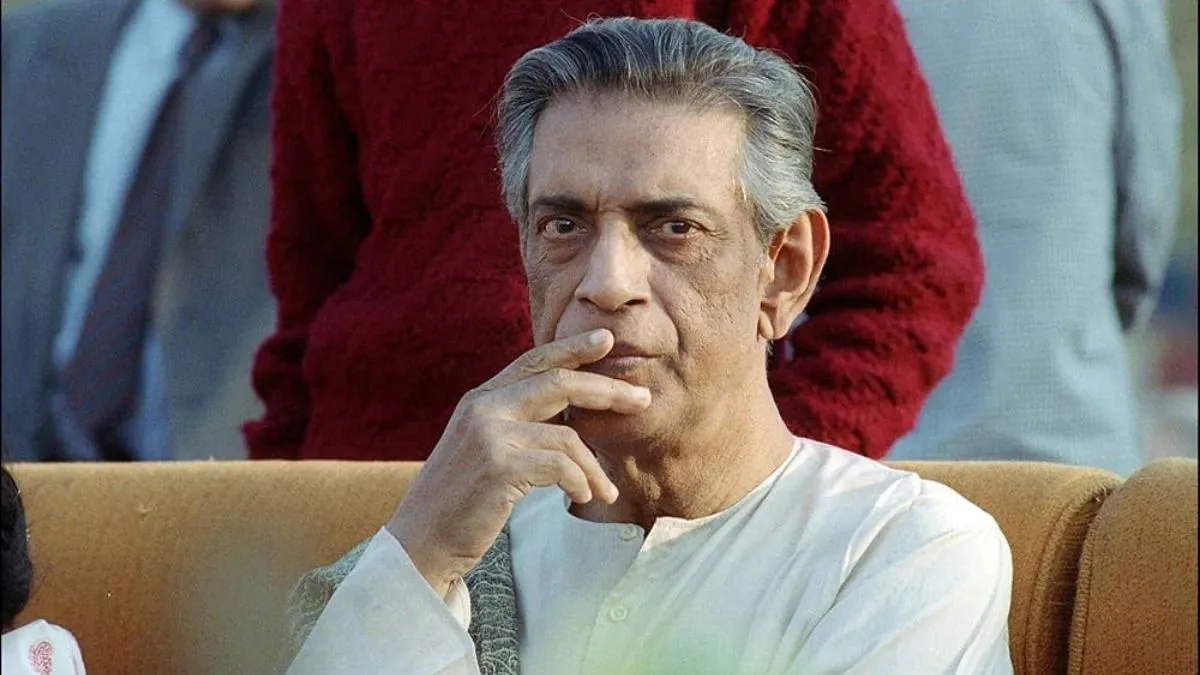- By Akansha Pandey
- Thu, 17 Jul 2025 08:10 PM (IST)
- Source:JND
The controversy over legendary filmmaker Satyajit Ray's ancestral house in Bangladesh took an amusing turn on Wednesday. Amid an uproar in India over the demolition of his ancestral property in Mymensingh, the Bangladesh Ministry of Foreign Affairs denied that the house belonged to the Indian filmmaker. The Ministry stated that the building "never had any relation with the ancestors of the noble laureate Satyajit Ray".
It was earlier reported that Bangladesh halted the demolition after the Indian Ministry of External Affairs (MEA) raised the issue with the neighbouring nation. West Bengal Chief Minister Mamata Banerjee had also opposed the demolition, saying the house was an important part of Bengal's cultural history. The house was reported to belong to Satyajit Ray's grandfather and famous Bengali writer Upendra Kishor Ray Chowdhury. But it so turned out that the outrage was over nothing.
What Happened To Satyajit Ray's Bangladesh Home?
The Bangladesh Foreign Ministry stated that the Ray family's original ancestral house on Harikishore Ray Road was sold years ago and does not exist anymore. The new owner built a multi-story building in its place.
"The District Authorities have perused the land documents in connection with the house and verified that the land is government property with no connection to the Ray family in any way," the Foreign Ministry stated. Some elderly villagers also testified that no links between the Ray family and the house in controversy.
What Happened So Far?
According to Bangladeshi media, the century-old house located on Harikishore Ray Chowdhury Road in Mymensingh had been deserted and in a dilapidated condition for the past 10 years. The plan was to demolish the house and build a new semi-concrete structure.
The Bangladeshi newspaper 'The Daily Star' quoted Mohammad Mahedi Zaman, district child affairs officer, as saying that the house had been lying vacant for 10 years and the Shishu Academy was functioning from a rented space. The officer also said that a semi-concrete building with several rooms would be constructed at the site of the old house to resume the academy's activities. Mahedi also told the newspaper that the old building was unsafe for children gathering in the premises.
Local residents say the house had been in a poor condition for several years, for which they blamed the administration's neglect. They also said that demolishing it would end the legacy of the Ray dynasty from the city of Mymensingh.
How India Reacted?
On Tuesday, July 15, expressing concern over this demolition, the Ministry of External Affairs had issued a statement. The statement said, "We are deeply saddened that the ancestral property of Satyajit Ray and his grandfather Upendra Kishore Ray Chowdhury located in Mymensingh, Bangladesh is being demolished." The ministry further said, "This building is a symbol of Bengali cultural renaissance and has historical importance. Therefore, the decision to demolish it should be reconsidered. It would be better if it is repaired and renovated as a museum of literature and a symbol of the shared culture of India-Bangladesh."
Satyajit Ray's Cultural Significance For India
Ray's legacy is not limited to any one country but is a bridge connecting India and Bangladesh. They are one of the most important pioneers of Bengal's culture. Their work is celebrated in India and Bangladesh both. Satyajit Ray's grandfather, Upendra Kishore, was a renowned writer and pioneer of the Bengali Renaissance. This legacy was carried forward by his son and Satyajit's father, Sukumar Ray, a well-known poet and illustrator.
Satyajit Ray himself became a prominent figure in Bengali literature, art, as well as Indian and global cinema. Through his films, he spread the ideals of his ancestors across the world and carried forward their mission. His stories presented the core elements of the Renaissance, such as human zeal, modernity, and emotional depth, with a uniquely Bengali sensibility.
Satyajit Ray's films equally appreciate and influence the visions of both Dhaka and Kolkata because of his characters and the subject matter of his films irrespective of their geographical boundaries. His films based on family stories such as 'Goopy Gyne Bagha Byne', hold deep cultural significance for both India and Bangladesh. His ancestral house is considered to be a shared cultural heritage of India and Bangladesh and reflects the continuity of its traditions and values across the border.
India's proposal to renovate the house was not just an attempt to save a historic building but also a way to honour a shared memory and place that is important to both parts of Bengal. According to The Hindu, in February 2020, the Federation of Film Societies of India launched an international campaign to renovate the ancestral homes of legendary filmmakers Satyajit Ray, Ritwik Ghatak and Mrinal Sen.


